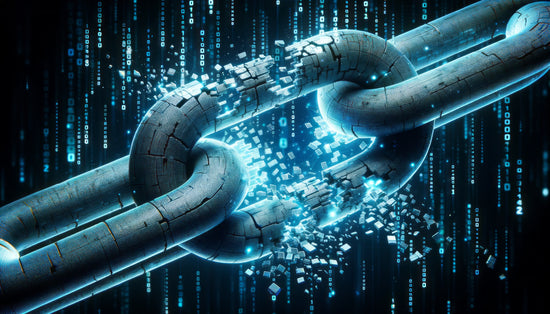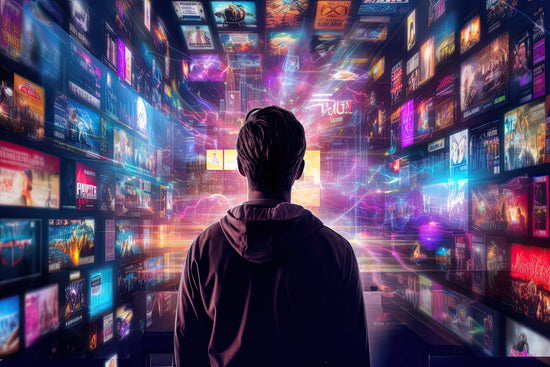“I’m not addicted, I can stop whenever I want.” We’ve all heard it.
We’ve all heard it. Digital addiction can manifest in various forms, such as excessive use of social media, doom scrolling, video looping, video games, or other online activities. People often use a range of excuses to justify their digital addiction.
While some excuses may have some validity in specific contexts, it's essential to consider the potential downsides and challenges associated with excessive digital use. Here are the top 10 excuses people use to justify their digital addiction, and how each one of them can be refuted.
I use it or need it for work.
Constant connectivity can lead to burnout and reduced overall productivity. It's important to establish designated periods for work and personal time to maintain a healthy balance.

I use social media to stay connected with friends and family.
People may claim that their online activities are essential for maintaining social relationships, even though excessive use can be counterproductive. While social media can facilitate connections, particularly when your family and loved ones are far away, excessive use may lead to shallow interactions and a distorted sense of social fulfillment.
Real, meaningful connections are better nurtured through face-to-face interactions and quality time spent together. Make sure your online presence doesn’t sacrifice your in person presence.
I use it to stay informed and research online.
Individuals may argue that their digital activities contribute to self-improvement and knowledge acquisition, even if it leads to excessive screen time. Digital platforms offer vast amounts of information, but the quality of information matters.
Constantly consuming information without reflection or application can be counterproductive. Balancing online learning with real-world experiences is crucial for effective knowledge acquisition.
I use digital platforms for entertainment and relaxation.
Some people turn to digital content as a way to unwind or escape stress, but this can become problematic when it interferes with other aspects of life. Digital entertainment can be enjoyable, but it's important to diversify leisure activities.
Spending too much time on digital platforms can hinder physical health, creativity, and the ability to find joy in offline pursuits.
I don't want to miss out on important updates or events
The fear of missing out on social events or news can drive people to constantly check their digital devices, leading to addictive behavior. FOMO (fear of missing out) can lead to compulsive digital checking.
It's essential to recognize that not everything happening online is of equal importance, and constant engagement can contribute to stress and anxiety. Prioritizing real-life experiences fosters a more balanced perspective.
I use digital tools to boost my productivity.
Some individuals argue that digital tools are essential for their productivity, even if the time spent on these tools exceeds what is necessary. While digital tools can enhance productivity, over-reliance can lead to distractions and multitasking, ultimately reducing efficiency.
Regular breaks from screens and the cultivation of offline productivity habits contribute to overall well-being.
It helps me escape from real-world problems.
Digital activities can provide a temporary escape from real-world challenges, but relying on them excessively can hinder personal growth and problem-solving. Escaping momentarily through digital means is normal, but it's crucial to address underlying issues and not rely solely on digital distractions.
Developing healthier coping mechanisms and facing real-world challenges directly promotes personal growth.
It's just part of my daily routine.
Over time, digital activities can become ingrained in daily routines, making it challenging for individuals to recognize and break the cycle of addiction. Breaking the cycle of digital addiction requires conscious effort.
Establishing new, healthier routines and incorporating offline activities can help individuals reduce their dependence on digital devices and foster a more balanced lifestyle.
I don't have other ways to spend my free time.
Some people argue that they lack alternative activities, making it difficult for them to reduce their digital dependence. Claiming a lack of alternatives is often a mindset issue.
Exploring new hobbies, spending time outdoors, and connecting with others offline provide viable alternatives. The key is to actively seek and engage in diverse activities that enrich life beyond the digital realm.
I use digital devices to monitor my health and fitness.
The use of health-related apps and devices can be beneficial, but when it becomes an obsession or leads to excessive screen time, it can contribute to digital addiction. Monitoring health through digital means can be beneficial, but moderation is key.
Excessive tracking or constant checking may lead to heightened stress levels. Striking a balance between digital health monitoring and intuitive self-awareness promotes overall well-being.
If these arguments sound repetitive… it’s because they are.
It's important to note that while these excuses may contain elements of truth, the base remains the same: moderation and awareness are crucial to prevent digital addiction from negatively impacting one's well-being.
If someone recognizes these patterns in their behavior, seeking support or establishing healthier digital habits may be beneficial.






















